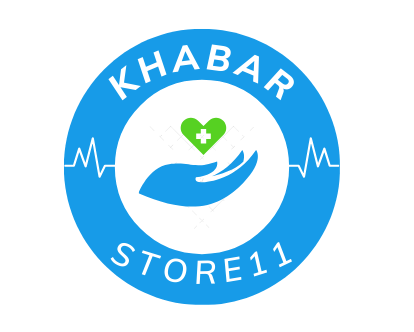The common cold, a universal ailment that spares no one, can be a nuisance no matter the season. It’s a viral infection that targets the upper respiratory system, including the nose, throat, and sinuses. Although not typically severe, the symptoms—such as a runny or stuffy nose, sore throat, cough, headache, and fatigue—can disrupt daily life, making it difficult to carry out even the simplest tasks. In this article, we’ll explore an array of effective home remedies that not only alleviate the symptoms of a cold but also strengthen your immune system, helping you to recover faster and prevent future occurrences.

Understanding the Common Cold: Symptoms and Causes
The common cold is primarily caused by viruses, with rhinoviruses being the most common culprits. These viruses are highly contagious, spreading from person to person through airborne droplets released when an infected person coughs or sneezes. You can also catch a cold by touching a surface that has been contaminated with the virus and then touching your nose, mouth, or eyes.
The symptoms of a common cold typically develop within one to three days after exposure to the virus. These symptoms include:
– **Runny or Stuffy Nose:** The most common and persistent symptom.
– **Sore Throat:** Often one of the earliest signs of a cold.
– **Coughing:** Usually mild but can be persistent.
– **Sneezing:** A reflex action to clear irritants from the nose.
– **Body Aches and Headache:** A result of the body fighting off the infection.
– **Mild Fever:** More common in children than adults.
– **Fatigue:** Feeling unusually tired and lethargic.
While these symptoms are usually mild, they can be bothersome and disrupt your daily routine. Fortunately, there are several natural remedies that can help ease these symptoms and get you back on your feet.
Preventing the Common Cold: Simple and Effective Strategies
Before diving into the remedies, it’s essential to understand that prevention is better than cure. Here are some effective strategies to minimize the risk of catching a cold:
– **Practice Good Hand Hygiene:** Regularly wash your hands with soap and water for at least 20 seconds. This simple act can significantly reduce the spread of viruses.
– **Use Hand Sanitizers:** When soap and water aren’t available, use an alcohol-based hand sanitizer to clean your hands.
– **Avoid Close Contact:** Stay away from people who are infected with a cold, especially during the first few days when they are most contagious.
– **Maintain a Clean Environment:** Regularly disinfect commonly touched surfaces such as doorknobs, light switches, and mobile phones.
– **Boost Your Immune System:** Eat a balanced diet rich in fruits, vegetables, and other nutrients that support immune health, such as vitamin C, vitamin D, and zinc.
READ MORE- HOW TO STOP COLD
Home Remedies for Common Cold Relief
Natural remedies have been used for centuries to treat colds. These remedies are not only effective but also gentle on the body, avoiding the side effects that sometimes accompany over-the-counter medications. Below are some of the most effective home remedies for the common cold.
1. Ginger and Honey: A Time-Tested Remedy
Ginger is known for its anti-inflammatory and antiviral properties, making it a powerful remedy against cold symptoms. Honey, on the other hand, has natural antibacterial properties and helps soothe a sore throat. To prepare this remedy, take a small piece of fresh ginger, crush it, and mix it with a teaspoon of honey. Consuming this mixture two to three times a day can provide significant relief from a sore throat, cough, and congestion.
2. Basil Leaves (Tulsi): The Holy Herb
Basil leaves, known as Tulsi in many cultures, are revered for their medicinal properties. They are rich in antioxidants and have antibacterial, antiviral, and anti-inflammatory properties. To use basil leaves as a remedy, chew on 5-7 clean leaves daily. Alternatively, you can make a herbal tea by boiling the leaves in water, adding a teaspoon of honey for sweetness. This tea not only soothes the throat but also helps in clearing nasal congestion.
3. Turmeric Milk: The Golden Elixir
Turmeric, often referred to as the golden spice, has been used in traditional medicine for centuries. It contains curcumin, a compound with strong antioxidant and anti-inflammatory effects. To make turmeric milk, add a pinch of turmeric to a glass of warm milk and drink it before bed. This remedy helps in reducing inflammation, soothing a sore throat, and boosting the immune system.
4. Steam Inhalation: Clearing the Airways
Steam inhalation is a simple yet effective remedy for a stuffy nose and sinus congestion. Boil water in a large bowl, cover your head with a towel, and inhale the steam for about 10 minutes. For enhanced benefits, add a few drops of eucalyptus or peppermint oil to the water. These essential oils have decongestant properties that help in clearing nasal passages and making breathing easier.
5. Lemon and Honey Drink: A Vitamin C Boost
Lemon is packed with vitamin C, a powerful antioxidant that boosts the immune system and helps fight off colds. To prepare this remedy, squeeze the juice of half a lemon into a glass of warm water and add a teaspoon of honey. Drink this mixture in the morning on an empty stomach. This not only alleviates cold symptoms but also helps in keeping your immune system strong and ready to fight off infections.
6. Saltwater Gargle: Soothing a Sore Throat
Gargling with salt water is a well-known remedy for sore throats. The salt helps to reduce swelling and irritation in the throat, making it easier to swallow. To prepare, dissolve half a teaspoon of salt in a glass of warm water and gargle several times a day. This simple remedy can provide significant relief from a sore throat and help prevent further infection.
7. Chicken Soup: A Comforting Remedy
Chicken soup has been a go-to remedy for colds for generations. It’s not just a comfort food; studies have shown that chicken soup has mild anti-inflammatory effects that can help reduce the symptoms of upper respiratory tract infections. The warm broth also helps to keep you hydrated and can ease a sore throat.
The Role of Diet and Hydration in Recovery
When you’re suffering from a cold, maintaining a healthy diet and staying hydrated are crucial for a speedy recovery. Eating a diet rich in fruits, vegetables, and whole grains ensures that your body gets the essential nutrients it needs to fight off the infection. Foods high in vitamin C, such as oranges, strawberries, and bell peppers, are particularly beneficial.
Hydration is equally important. Drinking plenty of fluids helps to thin mucus, making it easier to expel and reducing congestion. Water, herbal teas, and broths are excellent choices. Avoid caffeinated and alcoholic beverages, as they can lead to dehydration.
Rest and Stress Management: Key to Recovery
Rest is one of the most critical factors in recovering from a cold. When your body is fighting off an infection, it needs more energy, and getting sufficient sleep helps conserve that energy. Aim for at least 7-8 hours of sleep each night, and take naps during the day if needed.
Stress management is another important aspect of recovery. High stress levels can weaken your immune system, making it harder for your body to fight off the cold virus. Practice relaxation techniques such as deep breathing, meditation, or gentle yoga to help manage stress and promote healing.
Conclusion: Embracing Natural Remedies for Better Health
The common cold is an inevitable part of life, but it doesn’t have to disrupt your life completely. By incorporating these home remedies into your routine, you can manage and alleviate the symptoms of a cold naturally and effectively. From ginger and honey to steam inhalation and turmeric milk, these remedies are not only easy to prepare but also gentle on the body, providing relief without the need for strong medications.
Remember, while these remedies are beneficial, it’s essential to listen to your body. If your symptoms persist for more than a few days, worsen, or are accompanied by high fever or other severe symptoms, seek medical advice. Embracing a combination of natural remedies, a healthy diet, proper hydration, and adequate rest can help you recover quickly from a cold and strengthen your immune system to prevent future illnesses.
Taking care of your health with these simple yet effective strategies ensures that you remain resilient against the common cold and other minor ailments, leading to a healthier and more balanced life.
